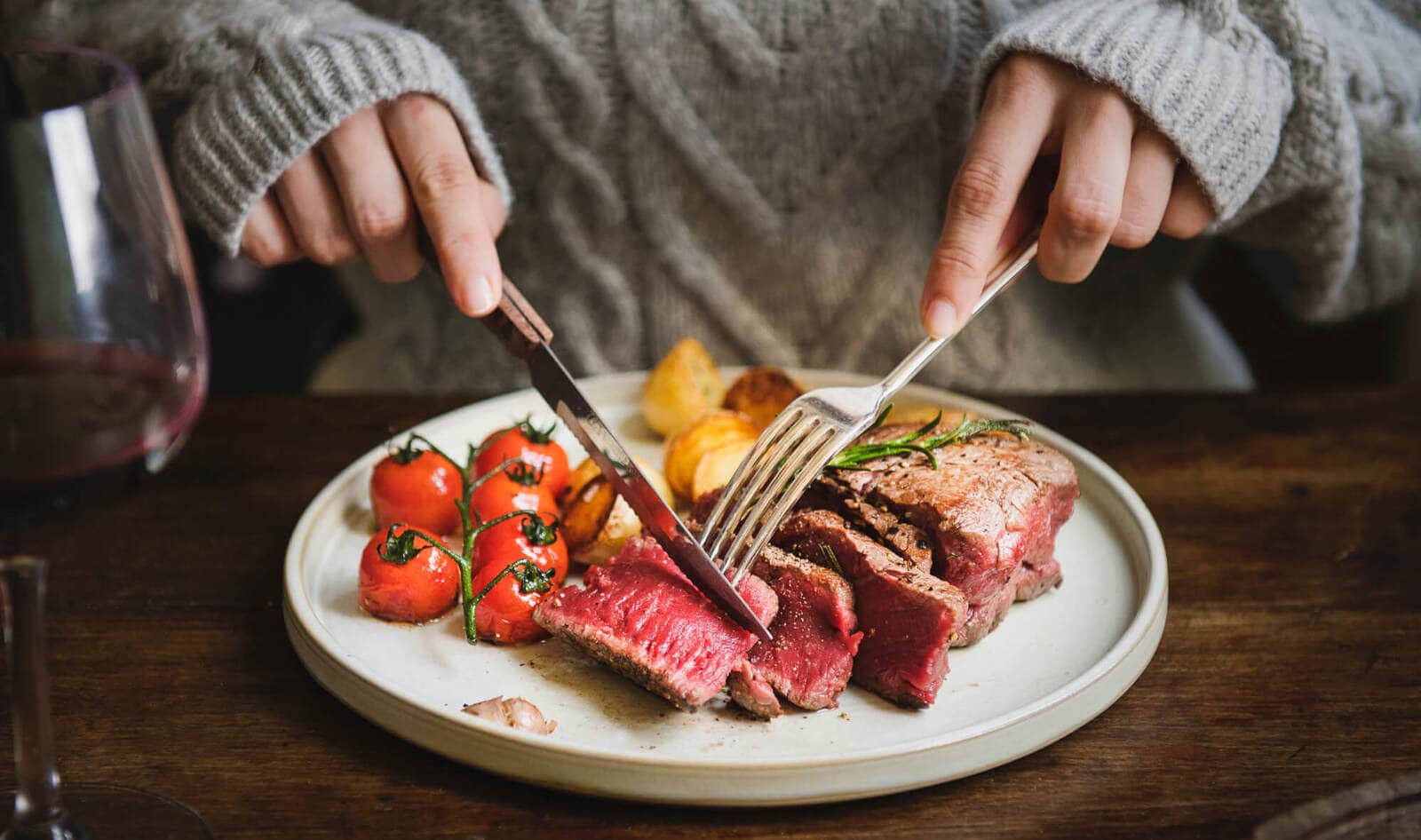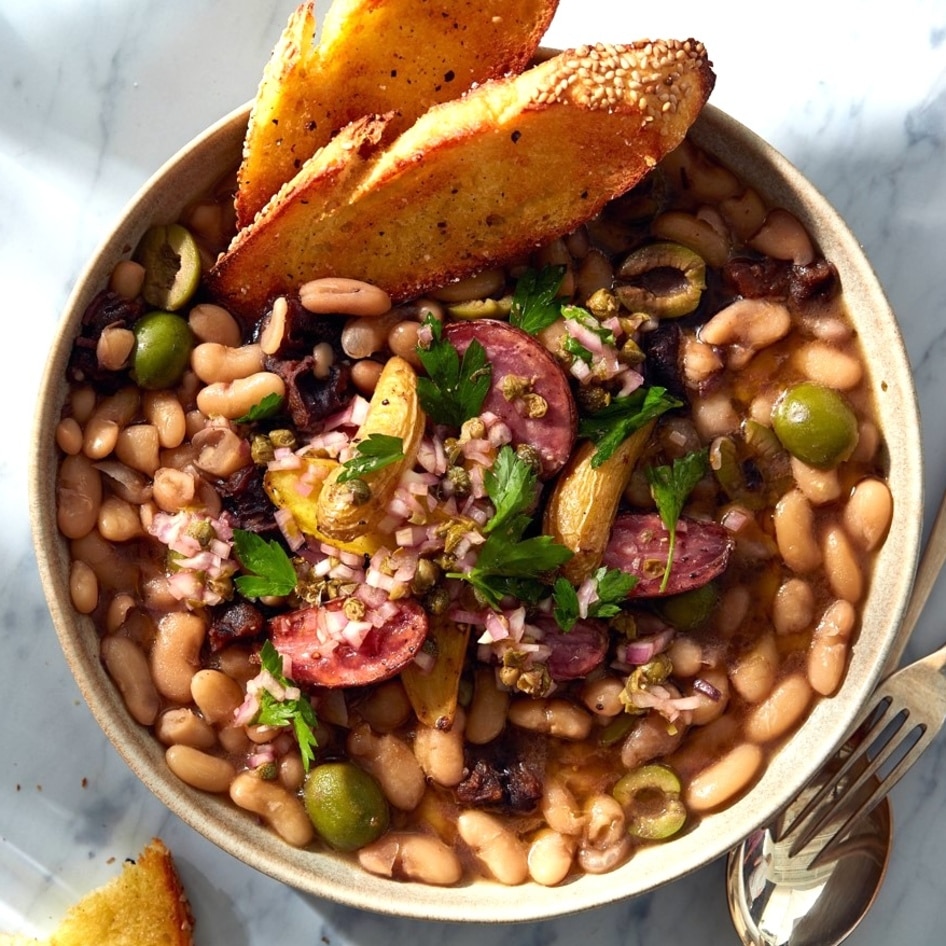Eating just one serving of red meat can substantially increase risk of cardiovascular disease, a new study found. A serving of red meat that is eaten and digested in the intestinal tract results in gut microbes producing chemicals that increase the risk for cardiovascular disease by 22 percent, according to a study published in the medical journal Arteriosclerosis, Thrombosis, and Vascular Biology.
The study, led by researchers at the Friedman School of Nutrition Science and Policy at Tufts University and Cleveland Clinic Lerner Research Institute, aimed to quantify the risk of cardiovascular disease associated with meat intake and identify the underlying biologic reasons that may help explain the risk.
The study involved almost 4,000 American men and women over age 65, with an average age of 73, and showed that higher meat consumption is linked to higher risk of cardiovascular disease—22 percent higher risk for approximately every 1.1 serving per day. About 10 percent of this elevated risk is explained by increased levels of three metabolites produced by gut bacteria from nutrients abundant in meat. In the study, higher risk and the link to gut bacterial metabolites were found for red meat specifically.
The study is the first to investigate the relationship between animal foods, the risk of cardiovascular disease, and the mediation of this risk by gut microbiota-generated compounds as well as by traditional heart disease risk pathways such as blood cholesterol, blood pressure, and blood sugar.

Red meat increases risk of cardiovascular disease
The research drew on years of data from the National Institutes of Health’s Cardiovascular Health Study, a long-term observational study of risk factors for cardiovascular disease in Americans aged 65 and older. The study adjusted for established risk factors such as age, sex, race/ethnicity, education, smoking, physical activity, other dietary habits, and many additional risk factors. Several blood biomarkers were measured at baseline and again during follow-up, including levels of the gut-microbiome generated trimethylamine N-oxide (TMAO) and two of its key intermediates, gamma-butyrobetaine and crotonobetaine, derived from L-carnitine, which is abundant in red meat.
“Interestingly, we identified three major pathways that help explain the links between red and processed meat and cardiovascular disease—microbiome-related metabolites like TMAO, blood glucose levels, and general inflammation—and each of these appeared more important than pathways related to blood cholesterol or blood pressure,” study co-senior author Dariush Mozaffarian, Dean for Policy at the Friedman School, said in a statement. “This suggests that, when choosing animal-source foods, it’s less important to focus on differences in total fat, saturated fat, or cholesterol, and more important to better understand the health effects of other components in these foods, like L-carnitine and heme iron.”
In this cohort of older US men and women, higher intakes of unprocessed red meat, total meat (unprocessed red meat and processed meat), and total animal source foods were prospectively associated with a higher incidence of cardiovascular disease during a median follow-up of 12.5 years.
The study authors noted that more research is needed to determine if the findings are generalizable across ages and nationalities. And while microbiome biomarkers were directly measured in the blood, the dietary habits of study participants were self-reported, and study findings are observational and cannot prove cause-and-effect.
“These findings help answer long-standing questions on mechanisms linking meats to risk of cardiovascular diseases,” study author Meng Wang, a postdoctoral fellow at the Friedman School, said in a statement. “The interactions between red meat, our gut microbiome, and the bioactive metabolites they generate seem to be an important pathway for risk, which creates a new target for possible interventions to reduce heart disease.”

How to help prevent heart disease
The new study provides a potential new target for preventing or treating heart disease in a subgroup of people who consume excessive amounts of red meat. Based on previous studies that have pointed to the negative effects of animal products on heart health, medical experts and organizations encourage patients to follow current recommendations for a heart-healthy lifestyle, including adapting a healthy diet that is rich in vegetables, fruits, whole grains, and other heart-healthy foods—and eating less or no meat.
Currently, the American Heart Association says a healthy diet and lifestyle are key to managing and preventing cardiovascular disease. This includes maintaining a healthy weight, regular exercise, and a diet that emphasizes a variety of fruit and vegetables, whole grains, and healthy sources of protein mostly from plants such as legumes and nuts.
Additionally, according to research published in the Journal of the American Heart Association, diets that focus on nutritionally rich plant foods can give young adults a healthier heart, lowering their risk of cardiovascular disease by 52 percent. The 32-year study found that even participants who shifted to a plant-based diet as they aged gained heart-protective benefits, regardless of the quality of their original diet.
Another study published in the Endocrine Society’s Journal of Clinical Endocrinology & Metabolism specifically pointed to dinner as the pivotal meal that determined one’s risk. Data collected from over 27,000 adults extracted from the National Health and Nutrition Examination Survey found that those who consumed a plant-based diet rich in whole carbohydrates and low in saturated fats reduced their risk of heart disease by up to 10 percent.
For the latest vegan news, read:
Lizzo Blazes Through ‘Hot Ones’ With Help From Daring Vegan Chicken
Vegans Who Lift Weights Have Better Bone Strength, Study Finds
Will This Cultured Palm Oil Be the Solution to Saving the Orangutans?
JUMP TO ... Latest News | Recipes | Guides | Health | Subscribe









